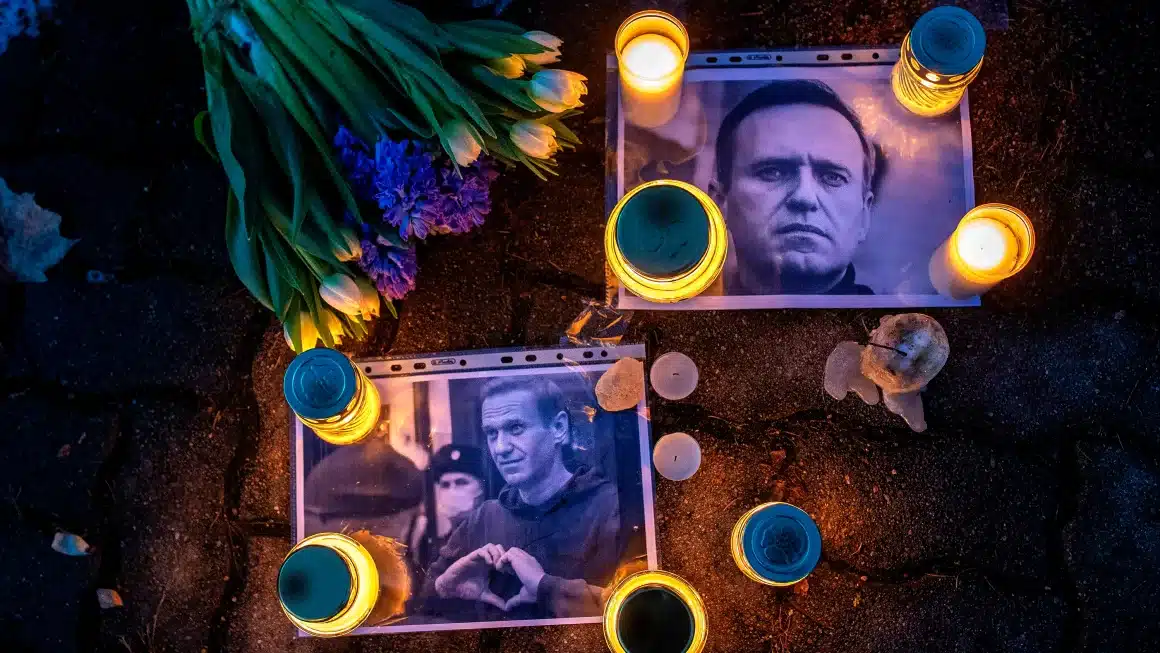Death of Alexei Navalny
The death of Alexei Navalny, a leading Russian opposition figure and an anti-corruption fighter, has caused an unprecedented wave of controversy in the country and launched an attack against the Kremlin. Explaining that her husband was poisoned by President Putin’s regime, her widow, Yulia Navalnaya, has furiously stood by her claims, adding fuel to the growing tensions in a country that is polarized. Meanwhile, investigation is still in progress and we are never sure that suspicion and shame won’t be spread all over the country.
A Life Dedicated to Opposition: A Life Dedicated to Opposition:
Navalny, a lawyer by background, became a renowned figure when he made himself a vocal critic of Putin’s regime. He came to international prominence for his increasingly firm championing of the fight against corruption within the country’s ruling elite, which he fought by wielding his strong legal expertise and social media dexterity. He investigated the corruption in the Kremlin, and his revelations, often aired on his popular YouTube channel, earned him millions of views and triggered multiple arrests and imprisonments that began with him.
The Poisoning and its Aftermath: The Poisoning and its Aftermath:
In August 2020, on a domestic flight in Russia, a few hours before landing Navalny fell critically ill after the poisoning with a Novichok nerve agent. He was then airlifted to Germany for treatment, where he was in Germany for months, to recover. Sentences have been personalized. The German government, together with several Western partners, charged the Russian government as the culprit in the poisoning, while the Kremlin refused to acknowledge the allegations.
The opponent’s reaction to Navalny’s re-entry to Russia in January 2021 was swift and no less than arrest and jailing based on fabricated charges, which were unarguably deemed politicized. After incarceration, his health continued to worsen as there were issues of medical care especially for him, which his family and supporters quietly raised.
Death and Accusations:
On February 18, 2024, the opposition politician, Navalny, died in a general-regime colony where he had been sentenced to nine years. His demise has provoked a massive protest and the whole theories about the involvement of the Kremlin have been described once again. In a dismal atmosphere, Yulia Navalnaya accused the head of state of ordering the murder of her husband, saying, “The entity itself killed him.”
Investigation and its Challenges:
The ambiance in which Navalny’s death is surrounded seems to be coated in a veil of affliction. Russian authorities have initiated an investigation, which is, however, criticized as biased by the opposition and overseas human rights defenders. No transparency and no independent oversight only further strengthen the speculations about a cover-up, which is making the gap between the government and its critics even deeper.
Impact and Uncertainties:
Navalny’s death has tarnished the Russian opposition movement and is a severe warning to the other oppositionists. This has greatly been exerting pressure on Russia-West relations, and even Western leaders have been calling for a thorough and transparent investigation. Nevertheless, the fact that the investigation is still in its initial stage and the Russian political climate is charged does not provide much hope that the story behind Navalny’s death will be fully revealed in the end.
The rest of the world is watching Russia carefully to see what happens next. Navalny’s demise is now a representation of the unending fight for democracy and human rights in the country, and the future of the Russian political scene may be greatly shaped by the outcomes of this tragedy.

Know More About News: NRUTimes
A Politically Defiant Voice in Russia
In the dense world of modern-time Russian politics, very few figures, if any at all, have aroused as much interest outside Russia as Alexei Navalny. An anti-corruption crusader as well as a political activist, the man who vehemently opposes Vladimir Putin’s system, Navalny, became an outspoken opponent in Russia. By his fearless call for transparency, accountability, and democratic principles, he won himself both the adoration of the masses and that of the opposition.
The Early Years:
Born on June, 4th 1976 in Buting, which is a small town near Moscow, Navalny was brought up in a middle-class family. He studied law at Moscow State University and later became an alum of the Finance Academy under the Government of the Russian Federation (degrees in “securities and exchanges’). Navalny’s early career consisted of working as a lawyer and a securities analyst, knowledge that came in very handy in fashioning his activism.
Political Awakening:
Navalny’s political blog initiated his political career started in 2008. He used his blog to draw public attention to widespread corruption within Russian corporations and government agencies. He made inquiries into various issues, usually publishing them together with his humorous remarks. That way, he became a renowned author. Navalny made use of social media and the online space to get his message across, a fact that makes him so popular as “the man who terrifies Putin.”
Anti-Corruption Campaign:
Moreover, Navalny’s activism was not confined to online commentary alone, as he established the Anti-Corruption Foundation (FBK) in 2011. The organization was ripe with in-depth investigations into high-level corruption, publishing them on social media and YouTube. Navalny’s exposes uncovered widespread corruption among the officials, thus generating sentiment of public outcry and demand for the officials to be brought into account.
Political Ambitions:
He continued in his struggle and encountered multiple legal cases, assaults, and other dangers. In 2013 he declared that he would be a candidate for the office of the Mayor of Moscow, using the issue of anti-corruption as his main platform. While in the end, his campaign was unsuccessful, it had a strong followership, proving that he is a capable leader able to attract the loyalty of the people and challenge the governing structure.
Legal Battles and Imprisonment:
The political activism of Navalny has come at a very high personal price. He has been detained repeatedly over charges that seem to be politically motivated. In 2014 he was convicted of embezzlement in a case which was categorized by many as a fabrication and was therefore awarded an incarceration sentence that was suspended. Mr. Navalny continued to have legal problems which culminated in his poisoning with the neuron agent Novichok in August 2020, an attack he and many Western governments linked to the Russian government.
International Response:
Putin’s attack on Navalny resulted in international worst-of-the-moment criticism and increased demand for sanctions against Russia. He was evacuated to Germany for medical care, where he made an incredible comeback to life. Constantly, he left the country on the 1st January 2021. Right away, he was arrested, causing mass protests in the country and being condemned by many world leaders.

